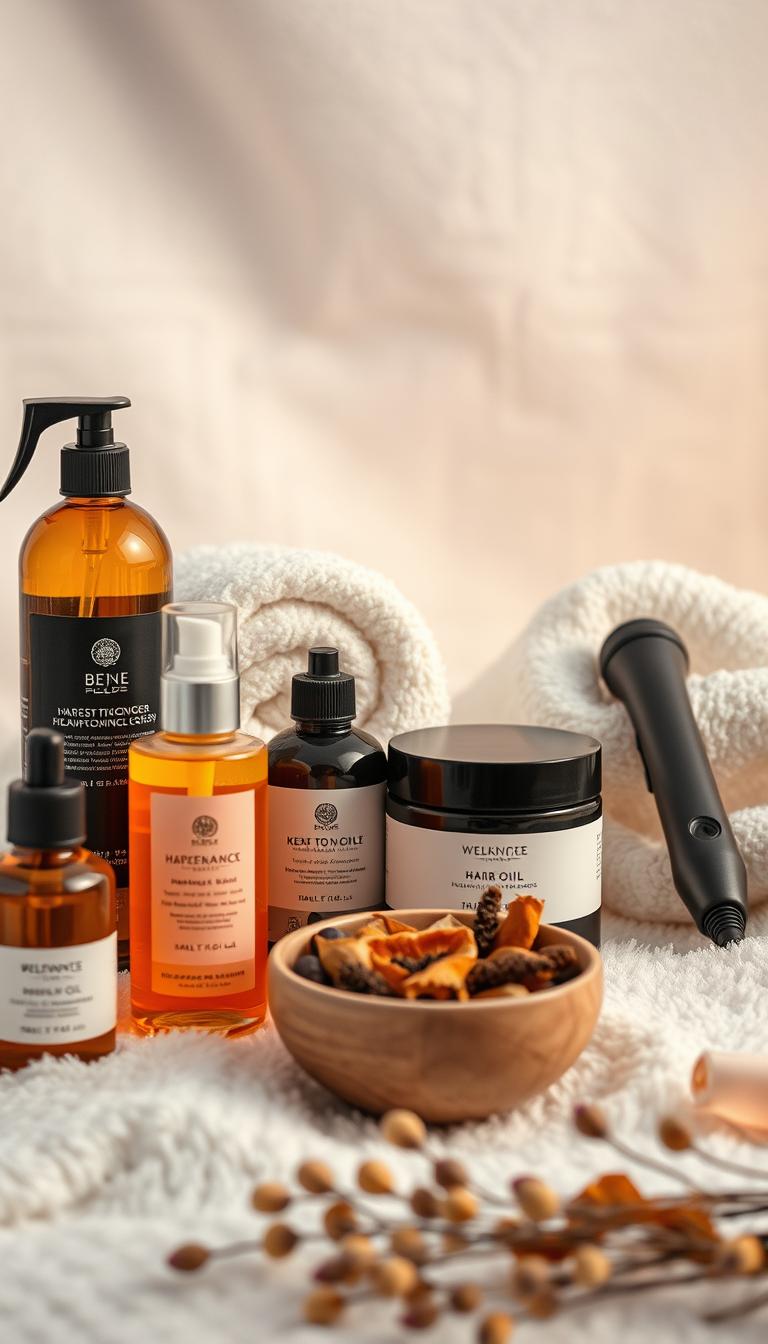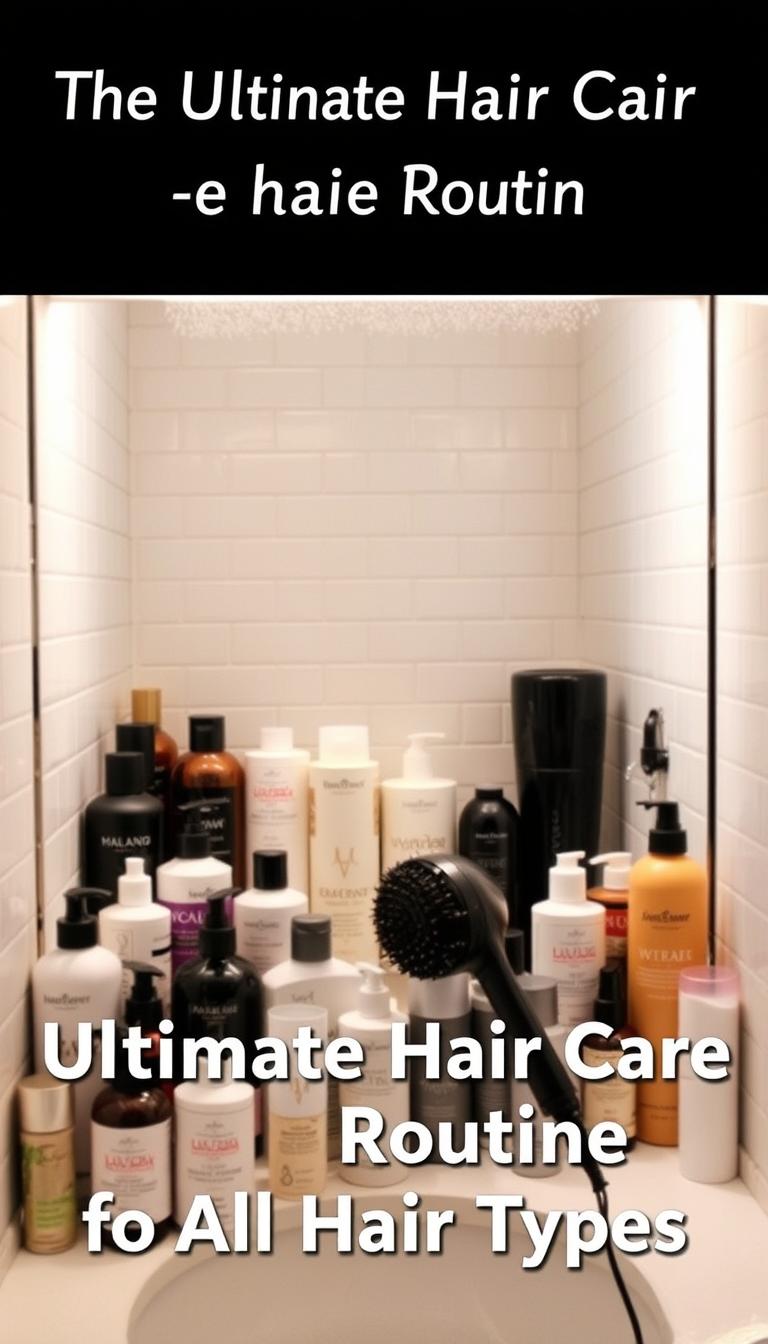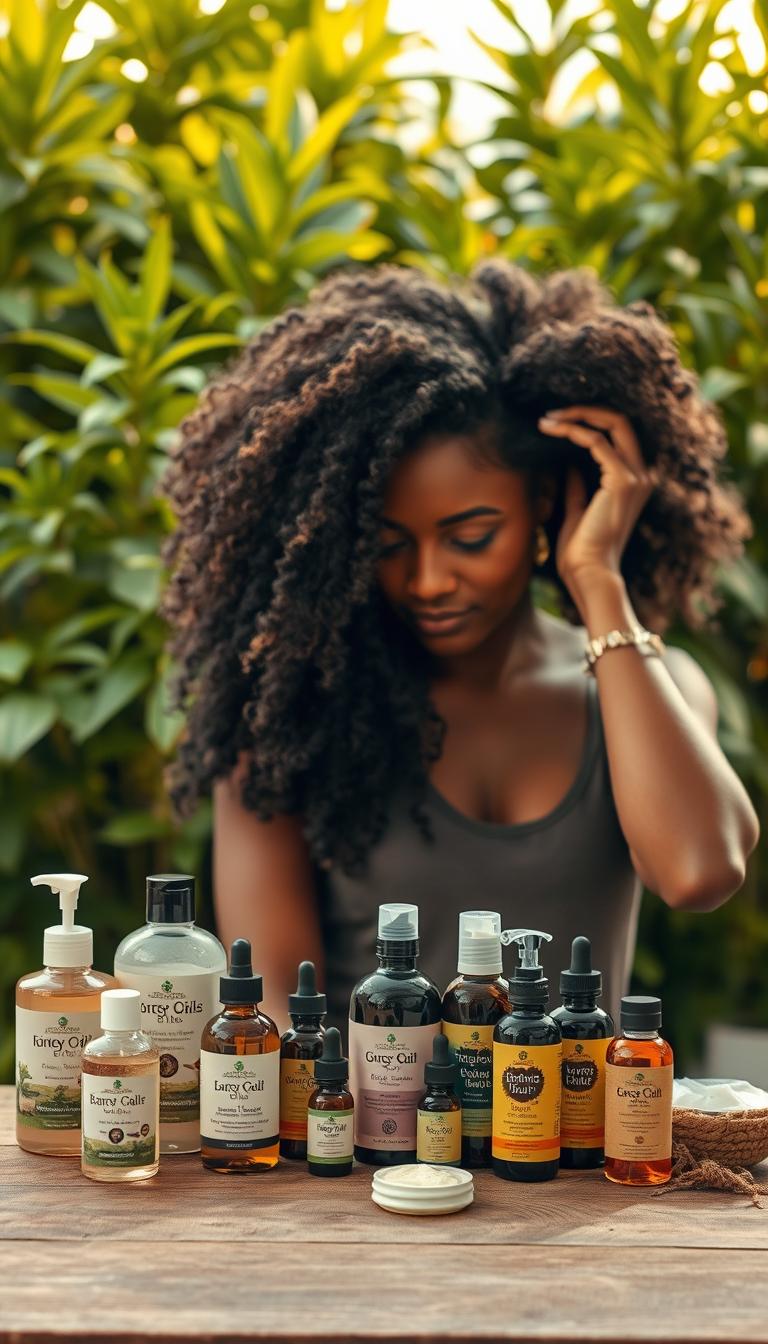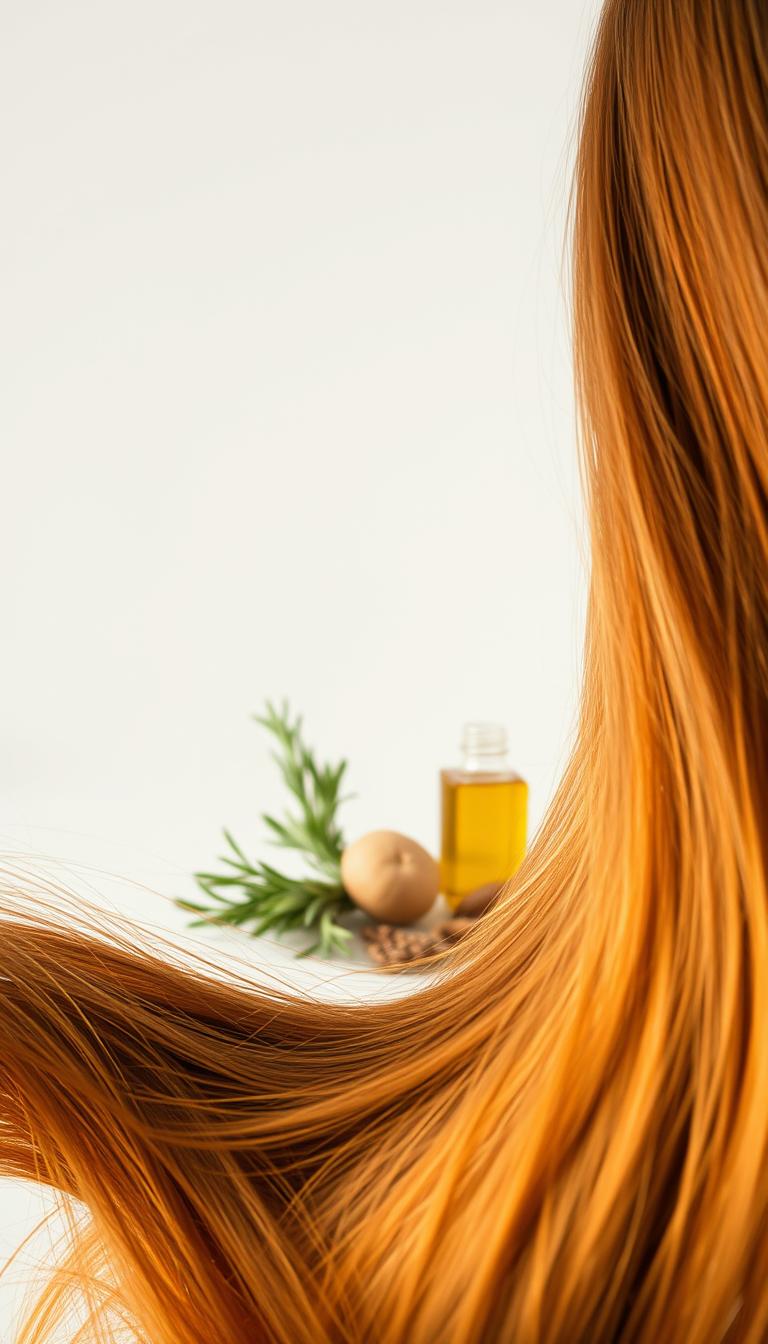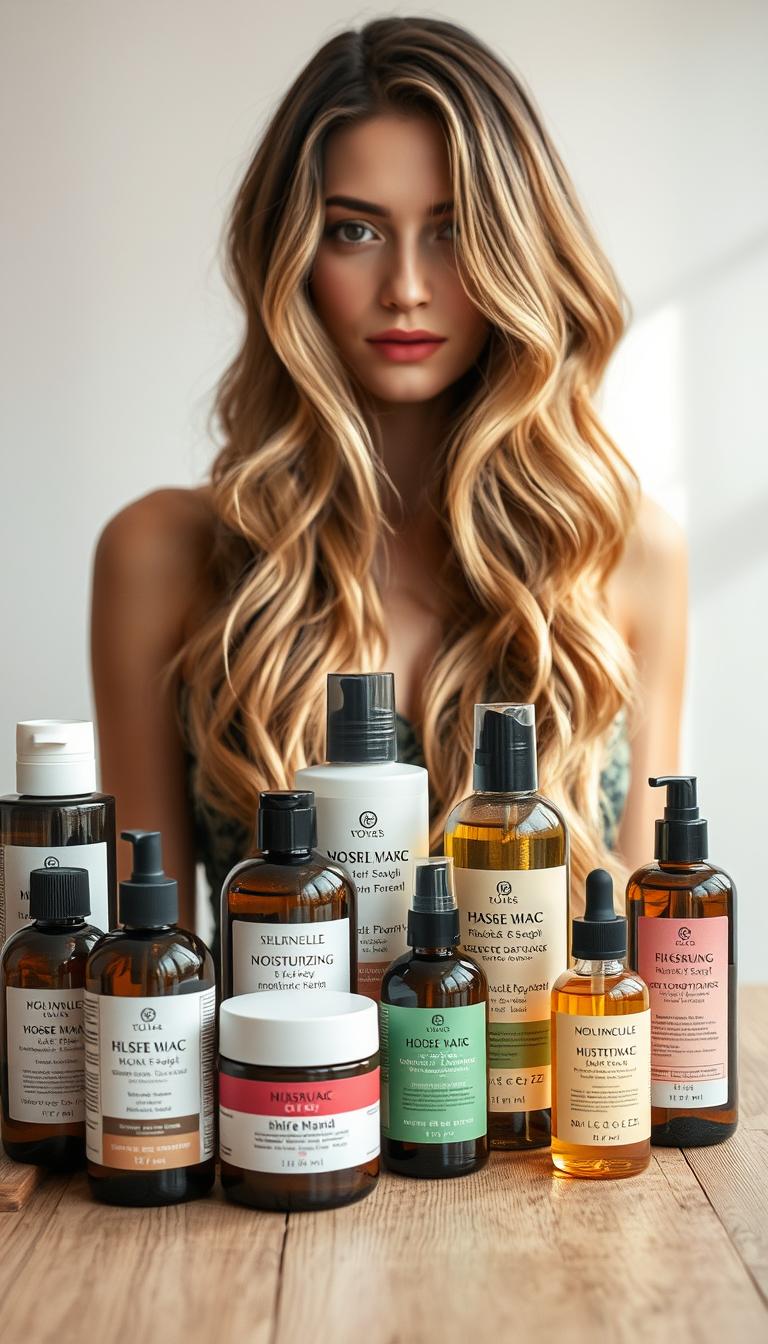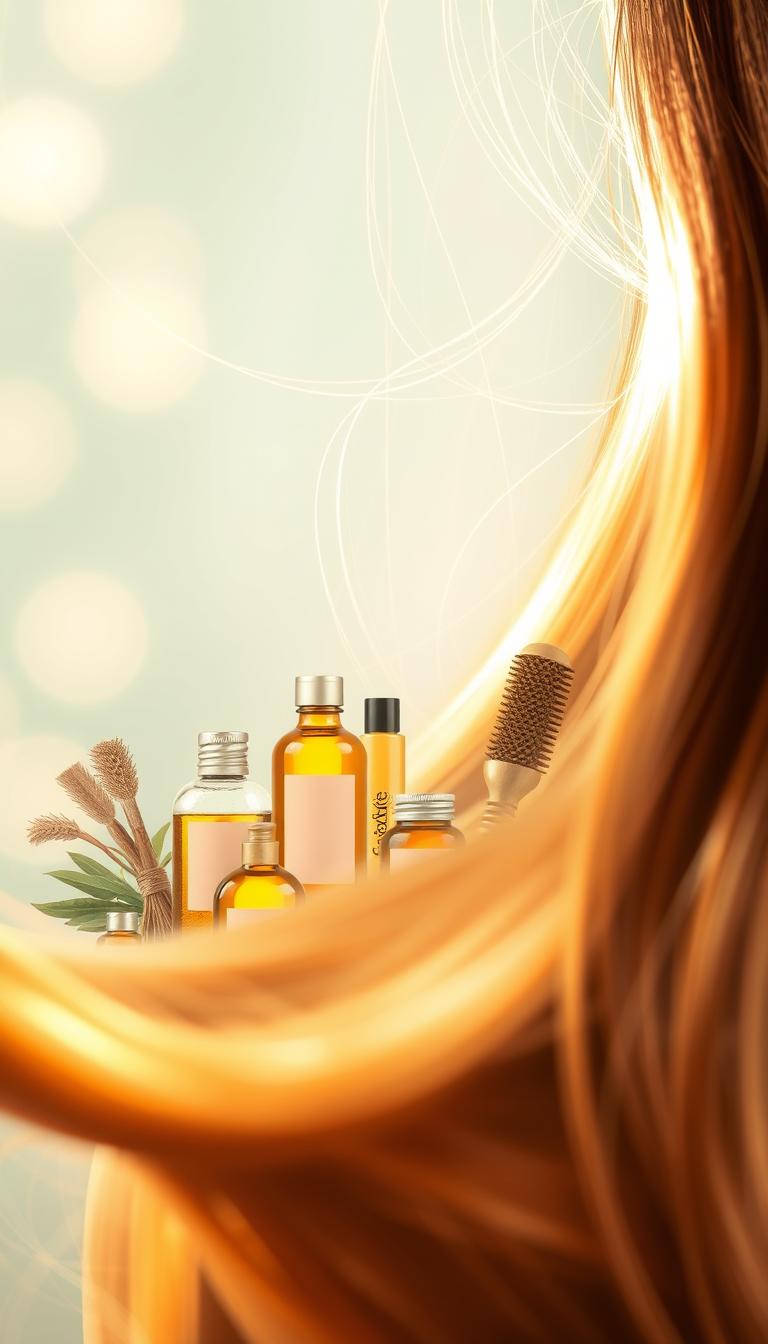10 Winter Hair Care Tips to Prevent Damage
As I wrap myself in warm layers and sip hot cocoa, I notice how winter air affects my hair. The cold air pulls moisture away, leaving my hair brittle and frizzy. Many of us face the same issue with unmanageable hair as the temperature drops.
Winter is a season that challenges our hair but also offers a chance for renewal and care. With the right Hair Care for Winter strategies, we can prevent damage and keep our hair healthy. Here are 10 essential winter hair tips that have helped me maintain my shine and softness during these chilly months.
Key Takeaways
- Cold, dry air can make hair brittle and frizzy, leading to significant changes in hair health.
- Using a nourishing conditioner is crucial for increasing hair hydration levels during winter.
- It’s essential to ensure hair is completely dry before going outside to prevent breakage from icy conditions.
- Minimizing the use of hot styling tools and using heat protection products can help reduce heat damage.
- Regular scalp massages can enhance moisture retention, supporting overall hair health through improved circulation.
Understanding Winter Hair Damage
As winter comes, it’s key to know how cold can harm my hair. The mix of cold air outside and warm air inside causes problems. This leads to dry and brittle hair, which is common in winter.
Understanding these issues helps me protect my hair better.
How Cold Weather Affects My Hair
Cold air is dry, making my hair rough and hard to handle. The cold causes my hair’s outer layer to open, losing moisture. Being outside more often makes my hair frizzy.
Also, indoor heat takes away my hair’s natural oils, making it even drier. The changing temperatures greatly affect my hair’s health in winter.
Common Winter Hair Problems
- Dry Hair: The air’s lack of moisture makes my hair brittle and weak.
- Frizzy Hair: Static can make my hair look frizzy and hard to manage.
- Split Ends: Harsh conditions can cause split ends, needing regular trims.
- Seasonal Shedding: Winter is when many hairs enter the telogen phase, leading to more shedding.
- Scalp Irritation: Cold air can dry out my scalp, causing flakes and discomfort.

Hydration is Key for Healthy Hair
In winter, keeping my hair hydrated is key for its health and look. Cold air is denser and drier, which weakens my hair and makes it break more easily. Using the right moisturizing hair products helps keep my hair vibrant and strong during the cold months.
Why I Need to Moisturize Regularly
Dry and brittle hair comes from harsh winter weather. So, I use hydrating shampoos and conditioners with aloe vera and shea butter. I also do deep conditioning treatments once a week to restore moisture and improve my hair’s texture.
Drinking natural teas or ginger and lemon infusions helps me stay hydrated. This boosts my hair’s moisture levels.
Best Moisturizing Products for Winter
I trust certain products for keeping my hair hydrated. Hair oils create a protective barrier against winter’s harsh elements. For example, Kérastase Elixir Ultime Hair Oil, priced at $75.60, deeply nourishes my hair.
The HoliRoots Hair Mask, priced at $32, is great for deeper conditioning. I also love the Charlotte Mensah Manketti Oil Pomade, available at $55, for extra moisture and shine. Using silk accessories, like hairbands, helps keep moisture in since cotton can dry it out.
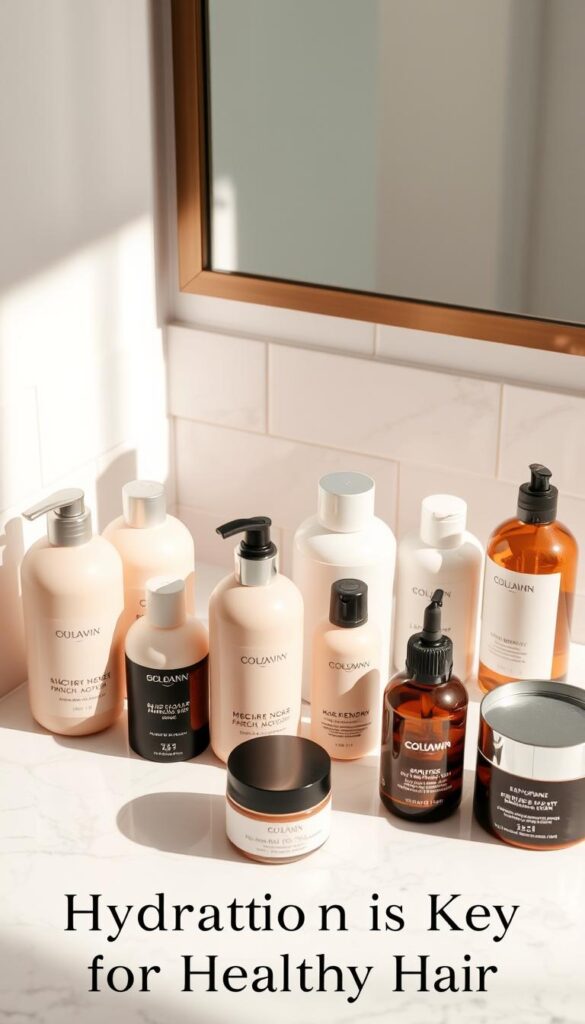
Choosing the Right Shampoo and Conditioner
Choosing the right shampoo and conditioner is key for healthy hair in winter. I use a sulfate-free shampoo to keep my hair’s natural oils. Winter shampoos are often filled with hydrating ingredients, which help fight dry, frizzy hair.
Sulfate-Free Options I Love
Don’t overlook high-performance shampoos for marketed hair masks. I love sulfate-free shampoos that work well without harsh chemicals. Some top picks include:
| Product Name | Price | Specialty |
|---|---|---|
| Maria Nila True Soft Shampoo | $32 | Combats static and frizz |
| Pureology Hydrate Shampoo | $37 | Long-lasting moisture |
| Philips B Peppermint Avocado Shampoo | $36 | Gold standard for clarifying |
| L’Oréal Professionnel Series Metal Detox | $32 | Removes hard-water buildup |
| Act + Acre Stem Cell Shampoo | $42 | Adds volume to fine hair |
Deep Conditioning Treatments
Adding deep conditioning treatments once a week is a game-changer. It boosts moisture, restoring hydration and repairing damage. Products with keratin and natural oils work wonders. For example, the Virtue Labs Curl Shampoo, at $42, hydrates curls well.
I often use these deep conditioning treatments:
- Shu Uemura Ultimate Reset Shampoo – $55 (Revitalizes damaged hair)
- Nutrafol Root Purifier Scalp Shampoo – $44 (Targets thinning hair)
- Klorane Dry Shampoo with Oat Milk – $20 (Refreshes hair during winter)
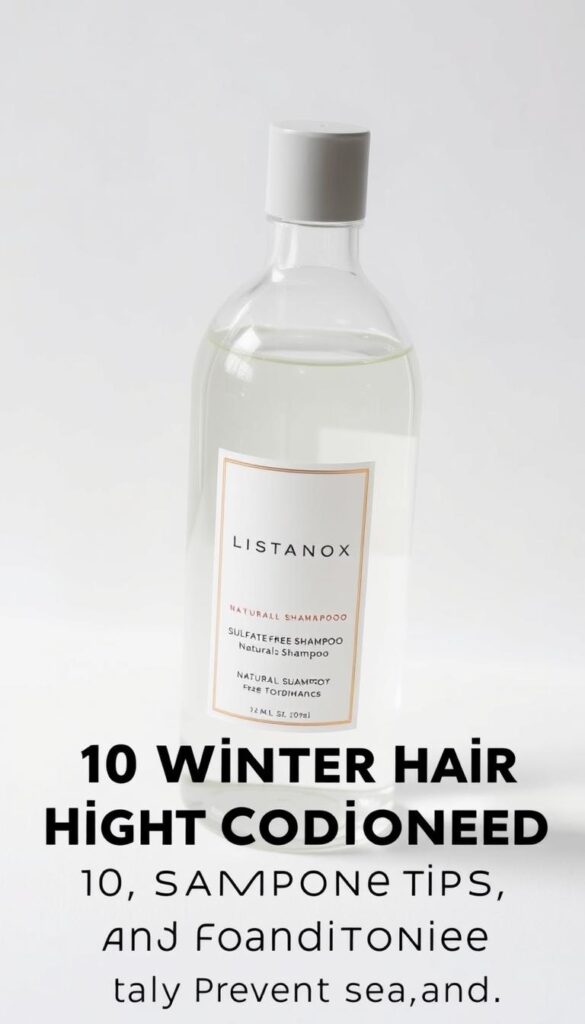
The Importance of Regular Trims
Keeping hair healthy in winter is more than just using the right products. It’s also about getting regular hair trims. These trims help keep hair looking great and prevent split ends. I make sure to get a trim every 6-8 weeks to keep my hair healthy.
How Often Should I Trim My Hair?
Experts say to trim hair based on its type and condition. Fine hair needs trims every 6 weeks to stop splitting. Thicker or curly hair can go 8 weeks without a trim. This helps stop split ends from causing more damage.
Benefits of Getting a Trim in Winter
Regular hair trims in winter are very important. They make hair look shiny and feel better. By cutting off damaged ends, hair grows healthier and breaks less. A professional trim keeps my hair long and fixes any issues, which is key in winter.
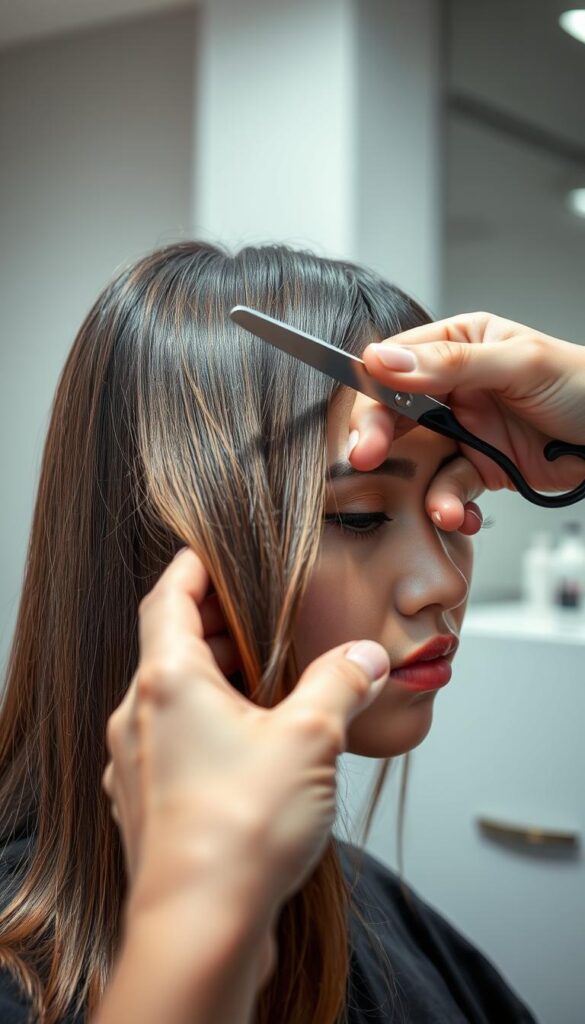
Protecting My Hair from the Elements
Winter brings cold air that can dry out my hair, making it brittle and damaged. Wearing the right winter headwear keeps me warm and protects my hair. Silk hats and scarves not only look good but also reduce frizz and breakage.
Hats and Scarves: Fashionable Protection
Soft materials in hats and scarves are great for my hair. I like silk-lined ones because they reduce hair breakage by up to 70% compared to wool or cotton. These accessories add to my style and protect my hair from winter’s dryness.
Best Materials to Use for Headwear
Choosing the right materials for winter headwear is key. Silk and satin are top picks for me. They feel luxurious and keep my hair moist, preventing dryness in cold weather. Plus, they keep my hair smooth and protect it from damage on windy days.
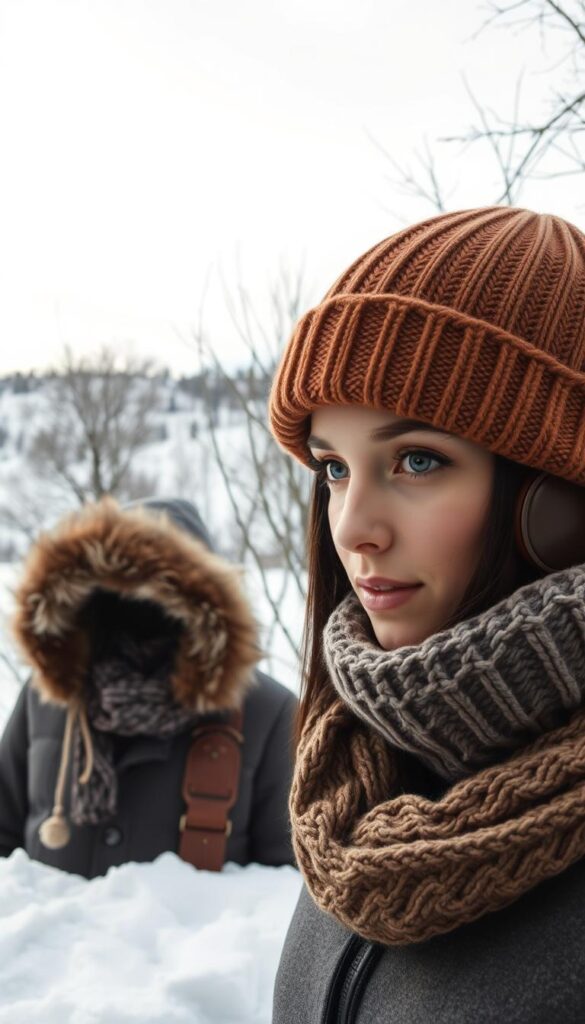
Limiting Heat Styling Tools
Winter’s cold, dry air is tough on my hair. Heat styling tools make it worse, causing dryness and damage. I cut down on using blow dryers, curling irons, and straighteners to keep my hair healthy.
Even when I need these tools for styling, I take steps to lessen heat damage. This helps my hair stay in good shape.
Why I Should Avoid Heat Tools This Season
Winter’s low humidity makes my hair lose moisture, leading to dryness and breakage. Heat styling tools can make this worse. I use heat protectants to keep my hair hydrated and prevent frizz.
By using less heat, I help my hair keep its natural oils. These oils are key to my hair’s health.
Alternative Styles for Winter
I look for winter hairstyles that don’t harm my hair. I try loose braids, soft waves, and embracing my natural texture. These styles let me look great without high heat.
Choosing these styles helps my hair stay healthy and nourished all season.
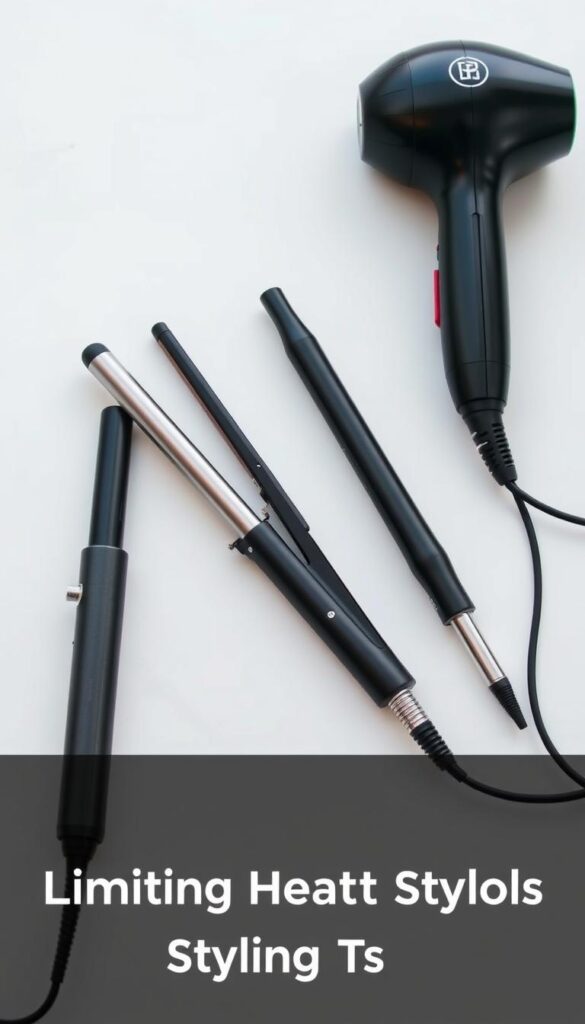
Eating for Healthy Hair
A well-balanced diet is key for healthy hair. I eat a variety of foods rich in vitamins and minerals. These nutrients are vital for hair health. Drinking enough water also plays a big role in my hair care.
Foods to Strengthen My Strands
I choose foods that are good for my hair and help it grow. Here are some of my favorites:
| Food | Benefits |
|---|---|
| Spinach | Rich in iron and vitamins A and C, promotes scalp health and strengthens hair. |
| Almonds | High in vitamin E, helps protect hair from oxidative stress and damage. |
| Salmon | Packed with omega-3 fatty acids, supports healthy hair growth and hydration. |
| Eggs | Loaded with proteins and biotin, essential for keratin production and hair strength. |
Hydration from Within: Drinking Enough Water
Drinking enough water is crucial for my hair and scalp health. I drink lots of water all day. This keeps my hair moist and boosts the benefits of a healthy diet.
Staying hydrated also improves my overall health. It’s especially important during the dry winter months to keep my hair vibrant.
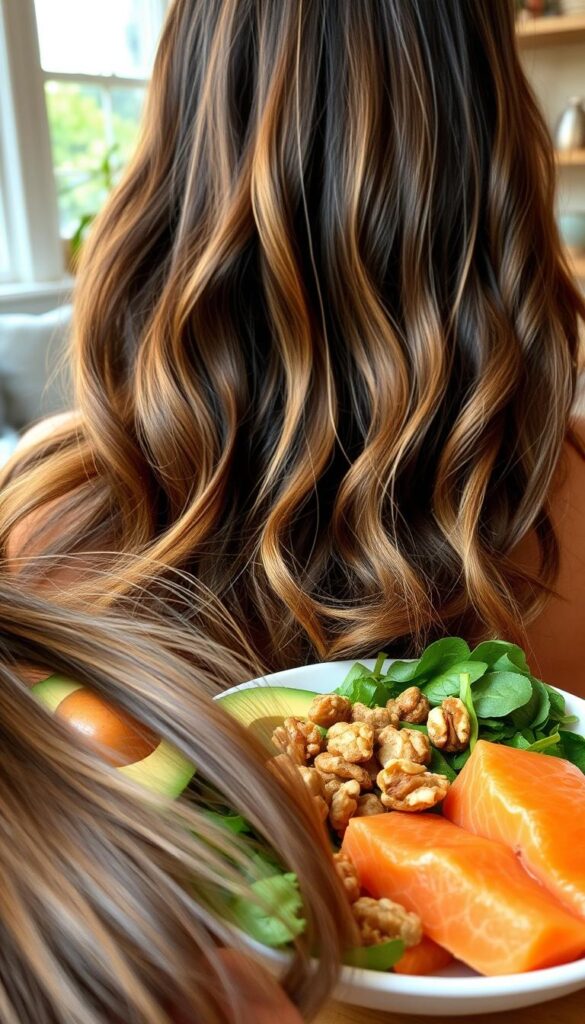
Hair Masks for Extra Care
Adding hair masks to my winter hair care routine has changed everything. These masks give my hair the hydration it needs, especially in the cold months. My hair gets dry and brittle then. I like trying out both homemade and store-bought masks to keep my hair healthy.
DIY Hair Masks I Can Make at Home
Making my own hair masks is a budget-friendly way to care for my hair. I use honey for moisture, coconut oil for nourishment, and shea butter for extra hydration. Here are some recipes that work well:
- Coconut Oil and Honey Mask: Mix equal parts of coconut oil and honey. Apply to damp hair for 15-20 minutes before rinsing.
- Shea Butter and Glycerin Mask: Combine melted shea butter with glycerin. Leave on for 10 minutes, then rinse thoroughly.
- Arginine and Panthenol Treatment: Blend arginine powder with water and panthenol to form a paste. Apply for added strength and shine.
Recommended Store-Bought Hair Masks
When I’m in a hurry, I turn to store-bought hair masks that work well. Here are some top picks:
- Guerlain Abeille Royale Double R Radiance & Repair Mask: Priced at $93, this mask is potent with glicoamine and promises visible repair after just 10 minutes of application.
- K18 Biomimetic Hairscience Leave-In Molecular Repair Mask: Claimed to reverse damage in just four minutes, this mask uses bond-building technology for efficacious results.
- Briogeo Don’t Despair, Repair! Deep Conditioning Hair Mask: Ideal for thick, curly hair, this treatment focuses on hydration and overall health.
- Amika Soulfood Nourishing Hair Mask: This mask is formulated to work well across various hair types and textures, providing essential moisture and strength.
Scalp Care for Winter
Winter brings unique challenges for maintaining a healthy scalp. The cold, dry air can cause scalp issues. It’s essential to prioritize scalp care during this time.
A well-maintained scalp is key for healthy hair. It allows for better growth and vitality. Keeping the scalp moisturized and free from build-up is crucial in winter.
Understanding the importance of treating dry scalp helps avoid irritation and flakiness. This is vital during the cold season.
Importance of a Healthy Scalp
In winter, reduced humidity leads to scalp dryness and irritation. Many people notice dry, itchy scalps during this time. Cold weather and wearing hats can cause build-up.
Frequent cleansing of the scalp is important. It helps maintain a balanced environment. Studies show that proper pH levels can reduce scalp issues significantly.
Establishing a routine for scalp health supports overall hair vitality. It helps keep flakes and itchiness at bay.
Tips for Treating Dry Scalp
- Utilize gentle scalp scrubs or nourishing oils to remove build-up and promote circulation.
- Incorporate deep-conditioning treatments at least once a week to restore moisture and elasticity.
- Try hydrating leave-in conditioners regularly to help reduce scalp dryness and improve texture.
- Implement the use of humidifiers indoors to combat dryness caused by heating.
- Consider scalp therapy products designed to decrease flakiness for improved scalp health.
Final Thoughts on Winter Hair Care
Reflecting on my winter hair care, I see how key it is to protect, hydrate, and maintain consistently. Cold, dry air can make my hair feel like straw, especially with thicker or curlier hair. Using deep conditioning treatments, like those with argan oil, has greatly helped fight dryness in this season.
My Winter Hair Care Routine Summary
My routine includes using sulfate-free shampoos and dry shampoo to manage oil. I also use hydrating scalp serums with hyaluronic acid. Washing my hair less, usually two or three times a week, helps keep it healthy and prevents brittleness. Regular trims also help fight split ends and improve my hair’s look, keeping me ahead of winter hair problems.
Staying Consistent for Healthy Hair
Sticking to a hair care routine is key for healthy hair in winter. By following my routine and watching out for environmental factors, I keep my hair vibrant and easy to manage. I suggest others do the same, using protective hairstyles, avoiding heat styling, and adding nourishing hair masks to their routine. This way, we can face the cold months with confidence, knowing our hair is strong and shiny.
FAQ
How does cold weather specifically affect my hair?
What are common hair problems I might experience in winter?
Why is it essential to moisturize my hair during winter?
What are some recommended moisturizing products for winter?
What should I look for when choosing a shampoo and conditioner for winter?
How often should I trim my hair during winter?
What types of hats and scarves should I use to protect my hair?
How can I limit heat styling tools during winter?
What foods can help strengthen my hair for winter?
How can I make DIY hair masks at home?
Why is scalp care important in the winter?
What can I do to treat a dry scalp in winter?
Source Links
- Top 10 Winter hair care tips for healthy and Nourished Hair
- Winter Hair Woes: Understanding and Combating Seasonal Shedding
- Winter Hair Recovery
- The Ultimate Winter Hair Care Guide for All Hair Types
- How To Keep Your Hair Hydrated During The Winter
- Top 10 Winter hair care tips for healthy and Nourished Hair
- The 11 Best Shampoos for Winter
- The Ultimate Winter Hair Care Guide for All Hair Types
- The Ultimate Winter Hair Care Guide for All Hair Types
- The Importance of Trimming Split Ends During Winter – Mirror Talks
- Winter Hair Care Guide: Tips & Routine | Cécred
- 9 Tips For Cold Weather Hair
- Winter Hair Care Tips: Keep Your Hair Healthy and Shiny
- Winter Hair Woes? Read These Expert Tips to Keep Your Locks Luscious
- The Ultimate Winter Hair Care Guide for All Hair Types
- Winter Hair Care: Protecting Your Scalp and Strands in Cold Weather
- The Ultimate Winter Hair Care Guide for All Hair Types
- Winter Hair Care: How to use Eggs to tackle winter hair fall | – Times of India
- Top 10 Winter hair care tips for healthy and Nourished Hair
- After Months of Testing, We Found the Best Hair Masks Ever
- Save Your Dry Damaged Hair With One of These Tester-Approved Hair Masks
- Stylists and Editors Agree—These 15 Masks Will Revive Even the Most Damaged Hair
- How To Treat Your Scalp and Hair in Winter | Harklinikken US
- Winter Hair Care Tips: Keep Your Hair and Scalp Healthy All Season Lon
- 6 Winter Hair Care Secrets to Wow-Worthy Strands
- Winter Hair Care: Tips for Keeping Your Locks Looking Healthy All Season
- Top Winter Hair Care Tips for Healthy, Damage-Free Hair

